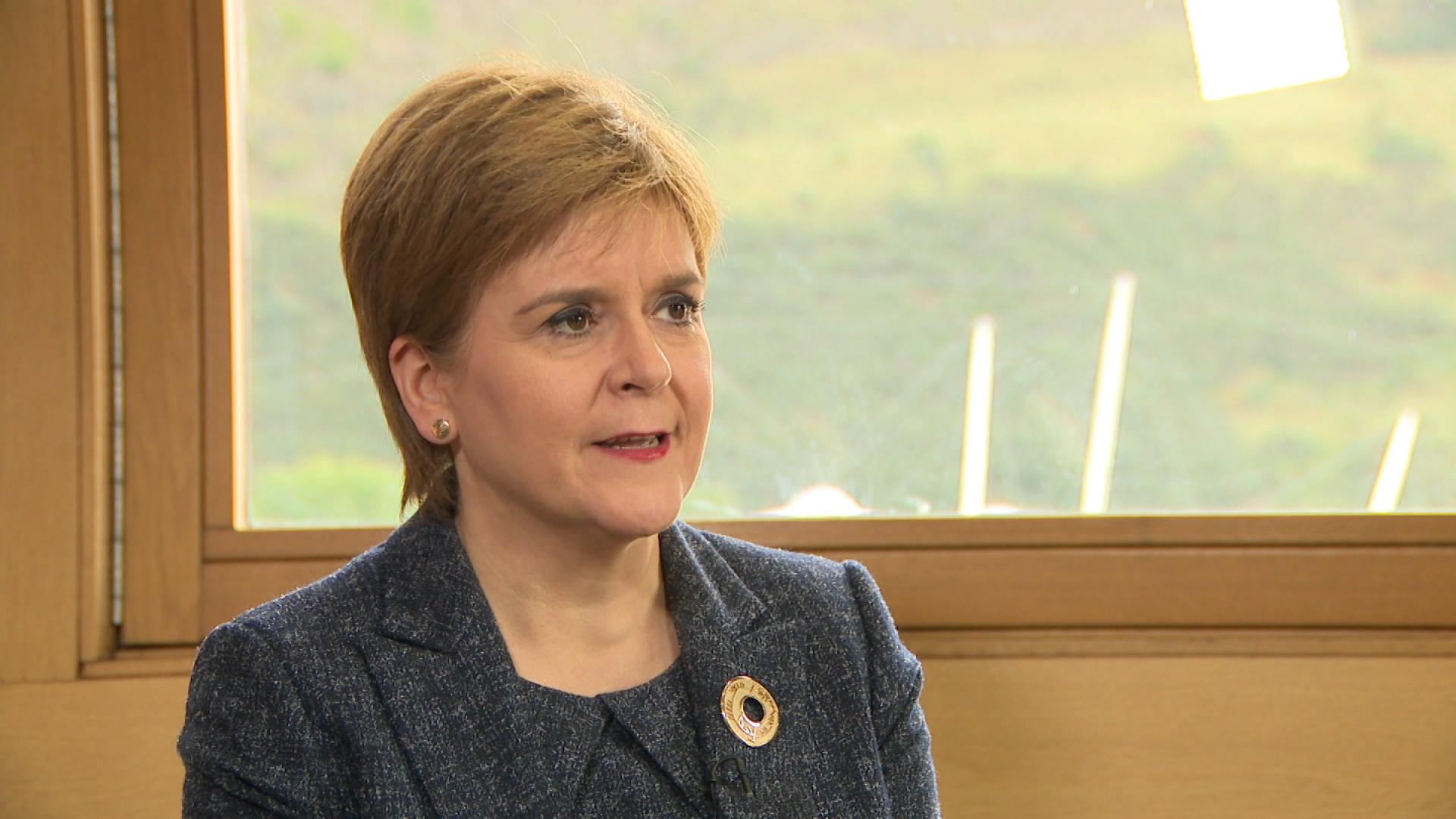SNP conference: Three questions facing the party
- Published
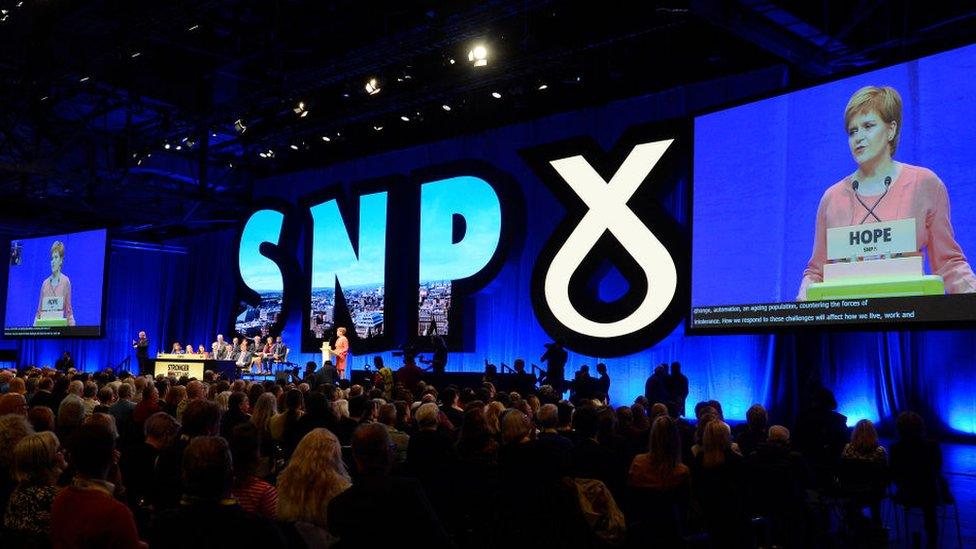
SNP members are to gather in Aberdeen for their Autumn conference, which opens on Sunday afternoon. At a tumultuous moment in UK politics, what are the biggest questions facing Scotland's dominant political party?

Imminent election
As with the other conferences this season, this gathering is taking place under the shadow of an election. The date has not yet been named, but don't doubt for a second that the parties are in campaign mode.
This might sound very basic, but the big electoral question the SNP is facing is how many people will vote for them.
Rounding up a bit, SNP candidates won half a million votes in 2010, then 1.5 million in 2015, then a million in 2017.
Based on those fairly wild fluctuations, what can party chiefs realistically expect their vote to do this time around? Should it be going up, down, or staying the same?

Perhaps this is why party president Ian Hughton urges members in his conference report to "maximise the conversations we have on the doorsteps in every community" and gather "essential data" in Activate, the party's voter database.
With the SNP still performing strongly in opinion polls, the big challenge is getting people who are minded to vote for them to actually turn up at a polling station and draw a cross in a box.
In terms of actual messages, expect to hear a lot at conference about the two main pillars of the party's platform: Brexit and independence.
The SNP will be keen for a big win to underline Scottish opposition to Brexit, and the nation's desire for a second independence ballot.

Independence - in a while?
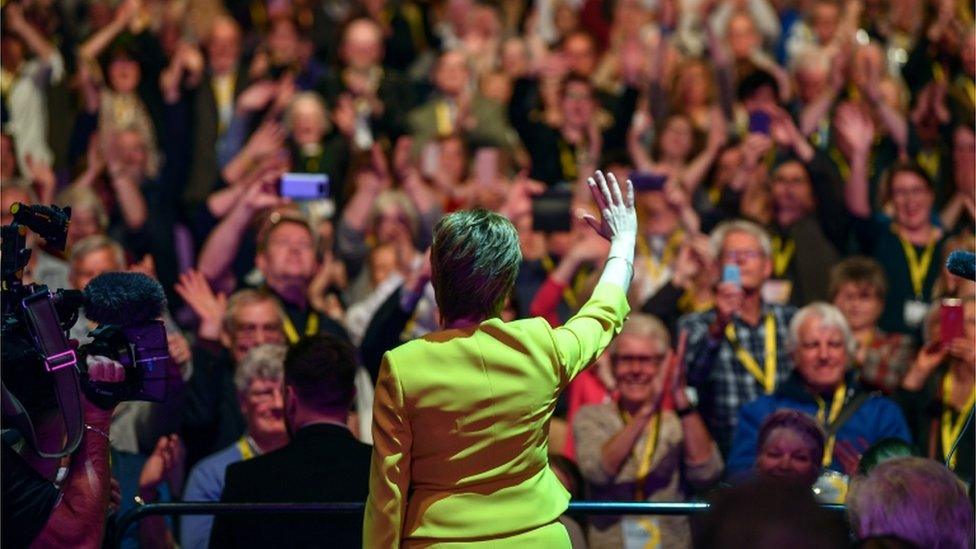
Independence will no doubt feature in Nicola Sturgeon's speech - but party members won't be formally debating it
Talk of independence is more or less guaranteed at an SNP conference. But there are rather more question marks at the moment over the chosen method of delivering it - indyref2.
As it stands, there is no actual debate on the conference agenda, external about a new referendum - neither how to secure it, or how to win it.
At the party's last conference, in April, there were spirited exchanges over the party's economic offering in any future referendum. For all that the membership actually inflicted a minor defeat on the leadership, there was a feeling of everyone moving forward together: it was tangible, steps were being taken to strengthen the case for independence and deliver and win indyref2.
This time round, barring a topical or emergency resolution, it seems mentions of indyref2 will be restricted to Nicola Sturgeon's keynote speech, and a panel session where Keith Brown, Kate Forbes and Mhairi Black will discuss "Scotland's future".
This may have been to ward off the efforts of some members who are pressing for a referendum as soon as possible - or, if the standoff with Westminster over holding one continues, a "plan B" for delivering independence.
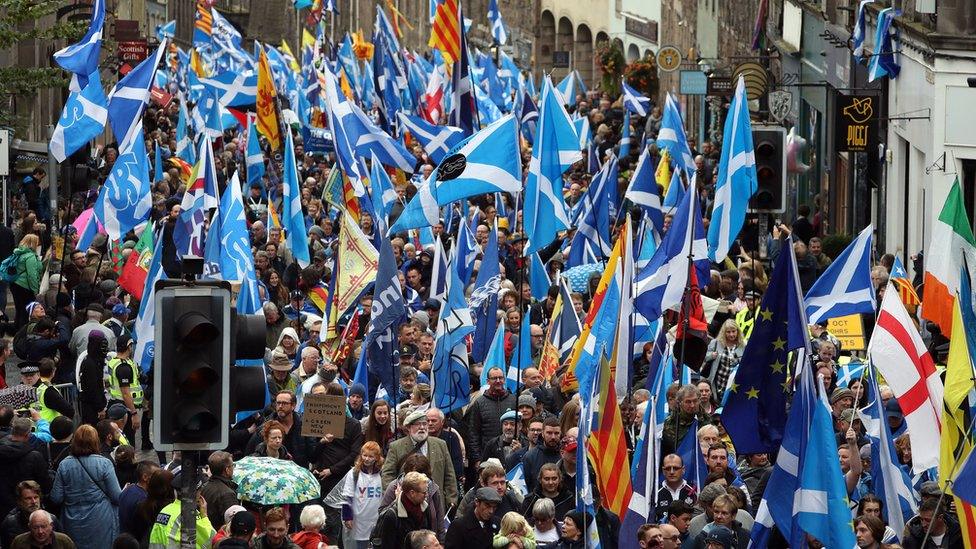
Thousands have marched in support of independence - but Nicola Sturgeon wants to win over No voters too
MP Angus MacNeil and Inverclyde councillor Chris McEleny were very public about their plans to table a motion suggesting that independence could be delivered via a majority win in an election, rather than a referendum. When this motion was rejected, they said they would instead lodge an amendment to some other motion, to include their plan.
They now apparently won't have that chance, as there are no motions about independence to amend. There are reports that the pair may attempt to protest about this by opposing the agenda as a whole, external.
Questions about the timing of indyref2 and what is being done to deliver it have swirled around SNP conferences since, well, indyref1.
But the party rarely proves itself to be as divided as its opponents hope. Twitter tirades aside, time and again the vast bulk of the membership prove themselves to be firmly behind Nicola Sturgeon.
Still, the leader is taking a tougher line with what rebels there are. Whereas previously she has politely asked for "patience" and urged members to keep the faith, her comments in the build-up to this conference have been stark: there is no shortcut to independence. Forget Plan B.
Or to put it another way, "keep playing with the heid". Get the groundwork done, and we'll have a referendum when we're sure we can win it.

Brexit blockage
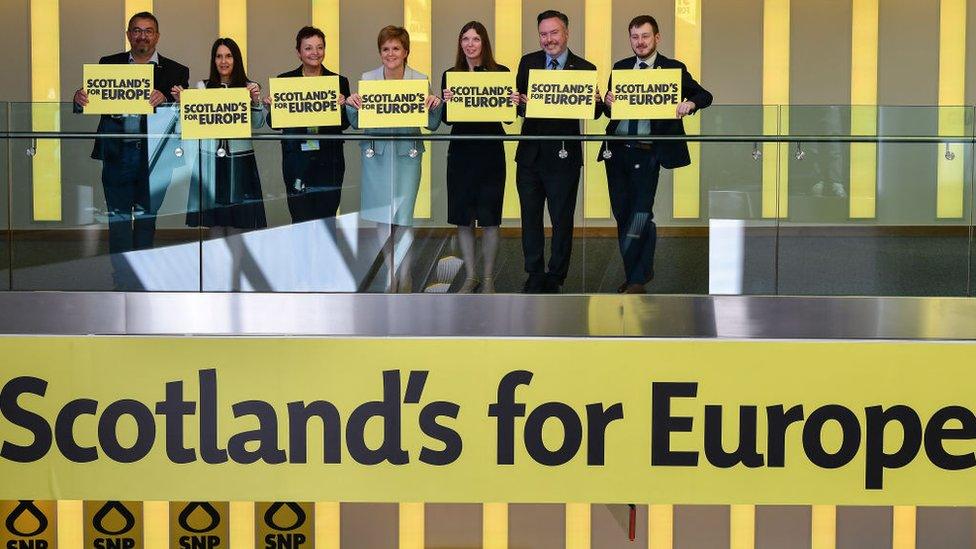
The SNP's previous conference, in April, also had a big European focus
The question of indyref2, like everything else in politics right now, is tangled up in the web of Brexit.
The SNP position on Brexit isn't a difficult one to sum up: they're against it. But beyond that, typically for this topic, things get complicated.
If it's a straight choice up against no-deal, the SNP would call off Brexit tomorrow. But they are also in favour of having a new referendum on EU membership, in which they would campaign enthusiastically to Remain.
The question is, where exactly does this rank in their priorities? Would they accept having the so-called "People's Vote" before indyref2, for example? And what would that do to Ms Sturgeon's goal of holding the independence poll before the 2021 Holyrood election?
The leadership's position is that Scotland is entitled to a fresh choice on its future, regardless of what happens with Brexit. But "what happens with Brexit" is still going to be very important.
Basically, in order to offer Scotland a choice, you need to know what the two different options are. Brexit Secretary Mike Russell calls it the "thesis and antithesis"; what exactly are people choosing between?
From the party's position, it's difficult to actually call a referendum on Scotland's membership of the UK while it remains so unclear what the UK would look like on polling day.
After all, Nicola Sturgeon doesn't just want to have a referendum - she wants to win one. Having such a huge uncertainty hanging over the campaign would make that a risky prospect.
Hence why she's happy to roll up her sleeves and get involved in the Brexit debate, using the SNP's weight as the third party at Westminster. The two constitutional questions now go hand in hand - one can't be settled until the other is.
- Published12 October 2019
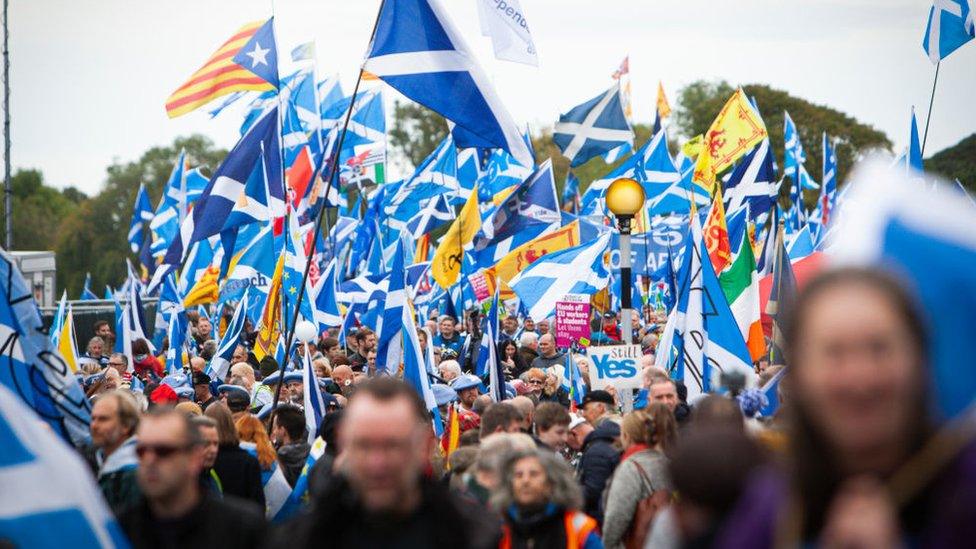
- Published10 October 2019
